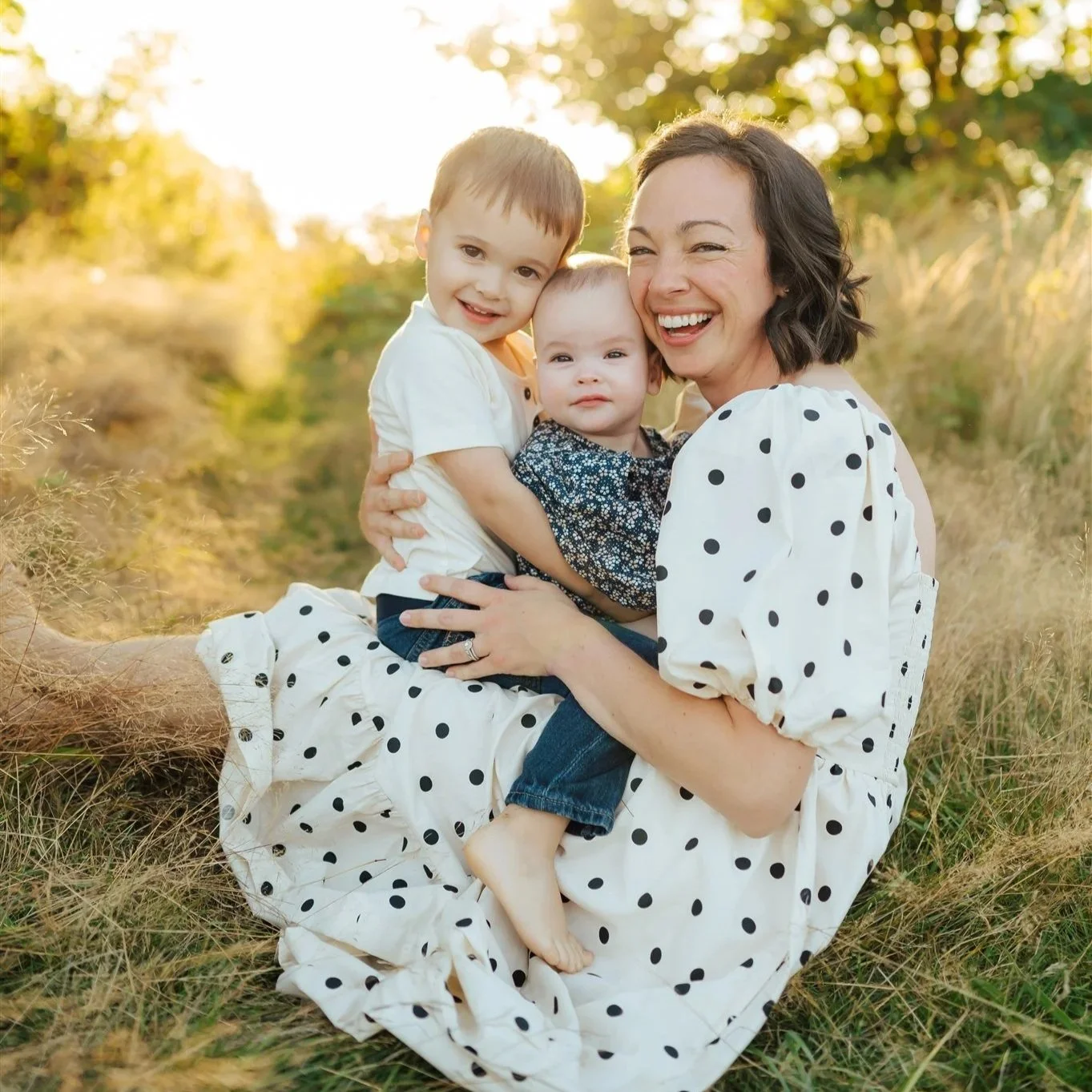“I Don’t Know How to Play With My Kid…”
This post was written by Lakeland Hahn, LICSW, of Lake Counseling (located inside the Heybrook, Kirkland!) Lakeland is a member of the Heybrook Provider Network. You can find all of our incredible go-to-experts here!
If you’re a parent who’s ever wanted to bang your head against a wall when asked to play restaurant (exaggeration…maybe) or who feels deeply awkward trying to play pretend with your child, you’re not alone.
As a play therapist, I hear this all the time: “It’s hard to play with kids.”
And it is.
Somewhere along the way, most of us lose our natural ability to play. Think back to yourself as a child. Can you remember what it felt like to sit in a room with your toys and get lost in the magical world you were creating? There’s a freedom and abandon in play that we don’t get to access much as adults.
So when parents come to me saying things like:
“I honestly hate playing with my kid,” or
“I don’t even know where to start,”
…it makes total sense. Our playful selves often get buried under the to-dos of adulthood.
Enter: Special Play Time
Special Play Time is a core piece of Filial Therapy (read more about Filial here) that gives parents simple, effective tools to connect with their children through play.
Let’s be real, sometimes we don’t like playing with our kids because:
It’s boring
We have no clue know what to do
Special Play Time helps with both. It gives you:
Mental stimulation as a parent
Clear structure and language so you’re not just fumbling through
A connection boost that helps kids thrive emotionally and strengthens your relationship
The science behind Filial Therapy and Special Play Time is rock solid. Special Play Time has been shown to support emotional well-being, reduce behavior issues, and improve parent-child communication (VanFleet, 2014). It even helps lay a foundation for those tricky tween and teen years.
So… What Is Special Play Time?
Simply put, it’s 10–30 minutes set aside each week (or more) where you focus solely on delighting in your child.
That means:
No phones
No distractions
No teaching
No correcting
No questions
Just you, your child, and your full presence. You are sending the message:
“I’m here. I hear you. I understand. I care. I delight in you.”
During Special Play Time, your main job is to empathize. You’re learning to see the world through your child’s eyes and respond to what they’re expressing through play. (Bratton & Landreth, 2020).
How Do I Actually Do That?
Here are three easy tools to try during Special Play Time:
1. Reflect What You See
Practice communicating non-judgementally to your child what you see and hear your them doing and saying. Picture yourself as a radio announcer calling a baseball game.
Try this:
Instead of: “Which color are you going to choose for your drawing?”
Say: “You’re thinking about which color to choose.”
2. Name the Feelings
Watch for facial expressions, body language, and vocal tone, and name what you think they’re feeling.
Try this:
Instead of: “Don’t be sad, we can just build another tower.”
Say: “It’s so frustrating when towers fall down.”
3. Let Them Lead
Let your child choose the activity. Set up a space with toys you’re okay with (leave out the paint if mess isn’t your thing). Follow their lead and jump into the play when invited.
Try this:
Instead of: “Don’t you want to finish this game before switching?”
Say: “You’re ready to play with the babies, I’m right behind ya!
The Heart of It All
The most important part of Special Play Time?
Your full presence and delight.
Even 10 minutes can make a difference when you’re truly attuned to your child. Be realistic about what fits your family. Experiment with what’s needed for your child in their developmental stage. And most of all, give yourself permission to rediscover the magic in your unique, wonderful kid.
If you want to learn more about Special Play Time, Filial Therapy, or Play Therapy, feel free to connect with me at hi@lakecounseling.co or visit my website.
Happy Playing!
ABOUT THE AUTHOR: Lakeland Hahn
Lakeland is a clinical social worker who provides playful mental health care and psychotherapy to kids and tweens, and their families, tending to the experiences of neurodivergence, anxiety, grief and trauma.
Lakeland Hahn, LICSW, Lake Counseling, lakecounseling.co, hi@lakecounseling.co, The Heybrook, Kirkland
PHOTOGRAPHY: Meredith McKee Photography
The images in this post were taken by Meredith McKee Photography - a greater-Seattle-based maternity, newborn and family photographer. Meredith is also the Director of Community for the Heybrook, and a mama to two littles! Learn more about her + her work at meredithmckee.com
Sources
Bratton, S. C., & Landreth, G. L. (2020). Child parent relationship therapy (CPRT) treatment manual: A 10-session filial therapy model for training parents (2nd ed.). New York, NY: Routledge.
VanFleet, R. (2014). Filial therapy: Strengthening parent-child relationships through play (2nd ed.). Sarasota, FL: Professional Resource Press.





